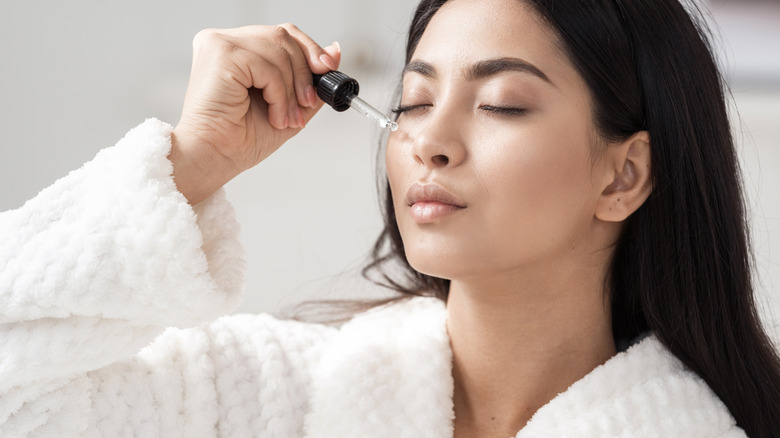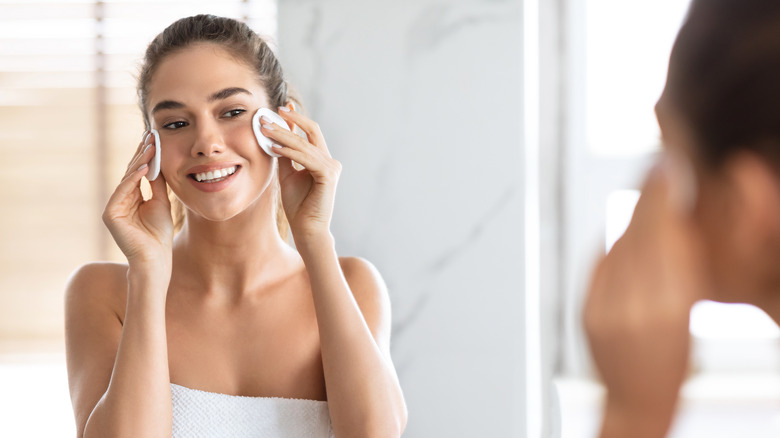3 Things A Dermatologist Would Never Use On Her Skin - Exclusive
There are thousands of skincare products out there, and it can be confusing trying to figure out what to spend our money on. While the best products will vary greatly between people based on their skin type and budget, there are a few things that no one should use on their skin. To learn what those products are, Health Digest spoke with Dr. Susan Massick, associate professor of dermatology at The Ohio State University Wexner Medical Center.
The first thing that Dr. Massick would never put on her skin is essential oils. "Essential oils are very popular for their "all-natural" properties as aromatic compounds extracted from plants," she said. "But in some circumstances, natural does not mean better, particularly when it comes to certain essential oils, especially if you are sensitive to one. Take lavender oil, for example. Touted for its healing and anti-inflammatory properties as well as its aromatic scent, lavender is a popular essential oil when used in its pure form or as an additive in other products. The issue is that any essential oil can cause skin irritation in people who are either sensitive or allergic. This results in skin redness, inflammation, itching, and recurrent rashes." Skip skincare products that contain essential oils and choose ingredients like ceramides instead.
Two more skincare ingredients to avoid
We love skincare products that smell good, but Dr. Massick warns against these items. "Everyone loves a signature scent, but fragrance is one of the biggest culprits when it comes to skin irritation," she explained. Added fragrances can have many names, and some are better than others. Dr. Massick specifically warns against cinnamic alcohol, including Balsam of Peru, cinnamic aldehyde, eugenol, geraniol, and oak moss. "Fragrances are typically found in perfumes, colognes, after-shaves, but are also used in cosmetics, flavored toothpaste, and soaps," she said. She recommends buying fragrance-free products that will reduce skin irritation.
The final thing Dr. Massick will never use on her skin is parabens. "There are multiple paraben esters, including butyl-, ethyl-, methyl-, propyl- parabens," she said. "Parabens are very effective and widely used preservatives in multiple everyday products, including cosmetics and personal care products as well as medications, food products, and textile manufacturing." Similar to essential oils and fragrances, parabens can cause irritation in all skin types, but especially in people with sensitive skin. "The more a product is used, the more intense the skin irritation can become, especially when in makeup products applied around the face," Dr. Massick said. "Cosmetics that frequently contain parabens include eyeliners, foundation, and concealers." Dr. Massick recommends reading product labels before purchasing skincare products and avoiding those made with parabens.
For more skincare advice, you can follow Dr. Susan Massick on Twitter.


